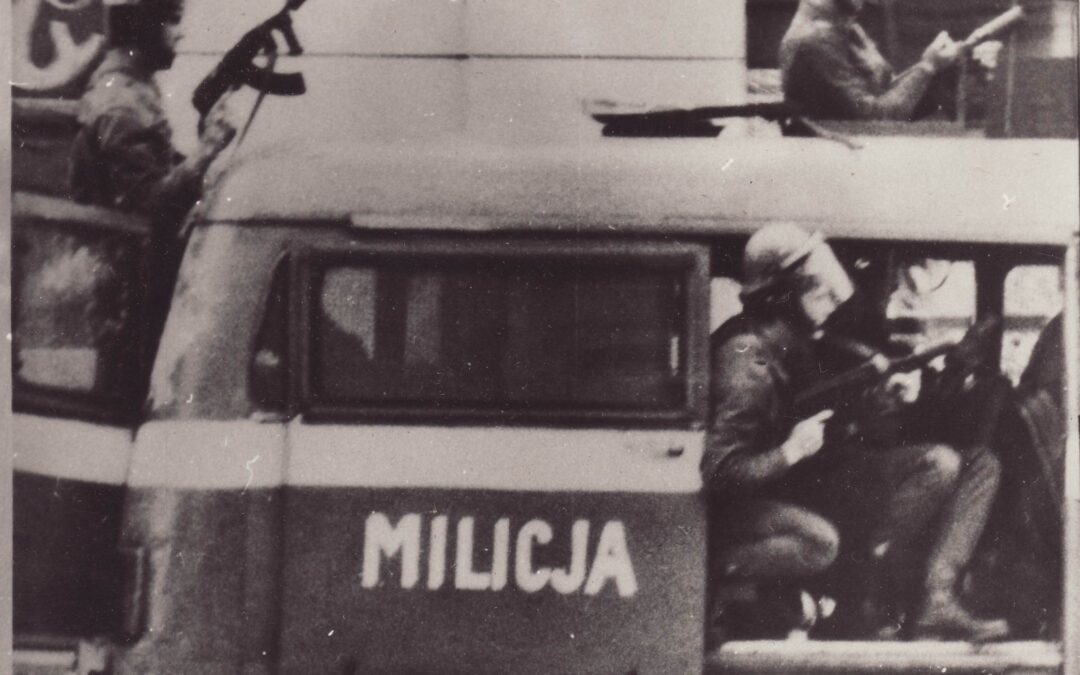Poland’s Institute of National Remembrance (IPN) – a state historical body with prosecutorial powers – has welcomed a ruling by the Supreme Court that opens the way to hold communist-era judges legally accountable for “judicial crimes” against opponents of the former regime.
“This is a groundbreaking ruling,” IPN spokesman Rafał Leśkiewicz told the Polish Press Agency (PAP). However, he expressed regret that this was happening “only now, more than 30 years after [the fall of communism], when many of these judges have died and escaped criminal responsibility”.
A 94-year-old former communist judge is to go on trial over his role in the 1952 execution of a pilot who tried to escape Poland for the West.
The case is the first of its kind against a judge from the Stalinist era, when thousands were sentenced to death https://t.co/BhqO5R8aBa
— Notes from Poland 🇵🇱 (@notesfrompoland) February 27, 2023
Yesterday, the Supreme Court’s chamber of professional responsibility – a body set up last year by the government – ruled on issues relating to a case brought by the IPN against a former Supreme Court justice who had served as a military judge during the period of communist martial law in the 1980s.
The chamber – which was being asked to new legislation introduced last year on disciplinary action against judges – found that judges cannot be held criminally responsible for errors in interpreting laws but that they can be for “judicial crimes”.
A judicial crime means intentional behaviour by the judge that imposes a penalty on the accused in violation of fundamental, generally recognised legal principles, notes legal news service Prawo.pl
The chamber also found that a judge could be responsible for a crime against humanity even for issuing a single ruling if it was part of a broader pattern of persecution by the state. And it ruled that judges could be released from their obligation of secrecy as part of criminal proceedings.
Prokurator Pozorski: możliwe jest prowadzenie postępowań karnych w sprawach sędziów z PRL#PAPinformacje https://t.co/J28IeJev4p
— PAP (@PAPinformacje) September 19, 2023
“It was a mistake of the judiciary and Polish justice system that there were no appropriate disciplinary and criminal proceedings in the case of crimes committed by people wearing uniforms and adjudicating in military courts in Stalinist times,” said Wiesław Kozielewicz, head of the chamber, in justifying the ruling.
The period of Stalinist rule in Poland in the 1940s and 1950s was a time of particular state brutality. But judge Kozielewicz added that later cases in the 1980s “should also have been sensibly accounted for” yet there has been a “total failure” to do so, reports PAP.
Andrzej Pozorski, who is deputy prosecutor general and director of the IPN’s commission for prosecuting crimes against the Polish nation, noted during the hearing that there are around 200 cases – against both communist-era judges and prosecutors – that were awaiting the Supreme Court’s ruling before going ahead.
A Polish Supreme Court judge has been stripped of immunity to face charges over issuing a conviction against an anti-communist activist in the 1980s.
The decision was made by a disciplinary chamber whose legitimacy the Supreme Court has itself rejected https://t.co/GICKMLGEEN
— Notes from Poland 🇵🇱 (@notesfrompoland) July 2, 2021
Pozorski and Leśkiewicz, the IPN spokesman, subsequently welcomed the positive ruling by the chamber.
“The effect of the Supreme Court’s decision is recognition that there is a concept of judicial crime and it is possible to conduct criminal proceedings in cases of judges issuing rulings in the [communist] period when there was a flagrant violation of the law by a judge who deliberately sentenced an innocent man,” Pozorski told PAP.
“This ruling opens the way to requesting a waiver of immunity for all military judges from the martial law period who opposed the principles of the law and clearly broke the law by sentencing anti-communist opposition activists and ordinary Poles to long prison sentences,” said Leśkiewicz.
Many in Poland – including the current ruling Law and Justice (PiS) party – argue that the country never carried out a full reckoning with its communist past after 1989, including allowing many former communist criminals to not only escape punishment but to remain in positions of authority.
Poland has removed the statute of limitations for communist crimes, many of which would have otherwise been time barred from the start of next month https://t.co/DEcpOJBIkv
— Notes from Poland 🇵🇱 (@notesfrompoland) July 20, 2020

Notes from Poland is run by a small editorial team and published by an independent, non-profit foundation that is funded through donations from our readers. We cannot do what we do without your support.

Daniel Tilles is editor-in-chief of Notes from Poland. He has written on Polish affairs for a wide range of publications, including Foreign Policy, POLITICO Europe, EUobserver and Dziennik Gazeta Prawna.



















